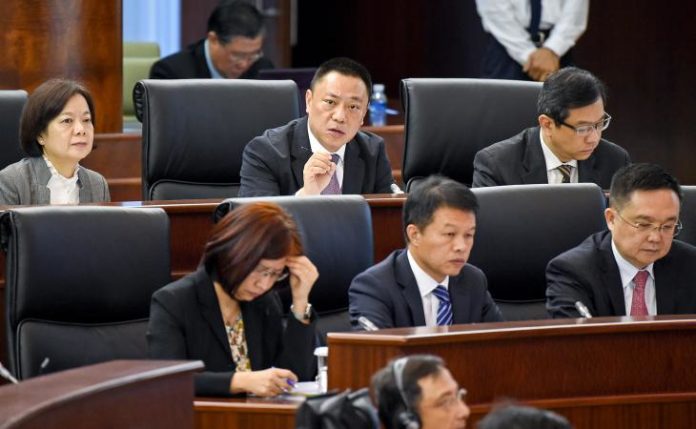Given that the current measures in place are outdated according to Secretary for Economy and Finance, Lionel Leong Vac Tai, measures to increase the fines and combat illegal operations on smuggling wild fauna and flora were under discussion yesterday in the Legislative Assembly. The draft was passed yesterday by the legislators at its first reading, and will be moved on to the subcommittee.
Questions regarding the proposed law largely revolved around the destination of living creatures apprehended under the scheme and responsible bodies for the care of living organisms.
The Civic and Municipal Affairs Bureau (IACM) President of the Management Committee, José Maria da Fonseca Tavares, pointed out that given Macaus lack of wildlife diversity in these cases, the animal in risk of extinction might not be from this region and may be at risk as they may not survive for very long requiring the Bureau to act as a scientific body and adopt specific measures for each case.
To effectively apply the measures described in the proposed law three main government bodies must co-ordinate to effectively safeguard animals and plants at risk of extinction.
The IACM would act as the scientific body, the Customs Bureau would act as the net to ensure no cross-border trafficking of plants and animals is effected, and the Economic Services Bureau (DSE) would act as the administrative body, according to the proposal of the law.
Responsibilities for the DSE would include the issuance of licences and certificates and the grant of exemptions for commerce and the moving of specimens and species inscribed on the annexes of the convention, the authorisation to introduce to the SAR specimens from the sea, and the organisation of the register of imports and exports, among others.
Not commercial object
Particular weight was given to the way specimens were preserved or handled, with a question raised as to whether non-living specimens, if proof was available, could be returned to their country of origin. IACM president José Tavares said, When theyre returned to their country of origin theyre often destroyed also [
] If the animals are alive we will work to get them home.
The Director of the Economic Services Bureau, Tai Kin Ip, brought up the case of the ivory in possession of the SAR. Of the 748 kilos apprehended by the Bureau, he said, 350 have been destroyed, 150 are in the process of being destroyed and another 200 kilos have gone to IACM or other entities for pedagogical purposes.
Legislator Perriera Coutinho pointed out the value of the potential apprehended objects and raised the question of how they would be guarded as well as a request that the government publish, on their departments respective websites, information regarding apprehended material, including photos and types of plant or animal life but excluding information on the individual or company apprehended. Secretary Lionel Leong said it would be taken into consideration.
With relation to the cultivation or breeding of plant and animal life in the territory, IACM president José Tavares noted that there are people who like to grow plants at risk of extinction. If this flower becomes commercialized than it would be necessary to register it; if not, that flower cannot be a commercial object, said the IACM head.
The bill previously introduced at the Executive Council also suggested that the fine for smuggling endangered species be raised to MOP500,000 (US$62,568) from the current MOP5,000. The Council has given the green light to a bill that will allow a broader application of the Convention on International Trade in Endangered Species of Wild Fauna and Flora.
The law will replace a law that has been in place fore more than 30 years and gets the MSAR closer to international standards. The authorities want to prevent the territory from being used as a conduit for smuggling.
























